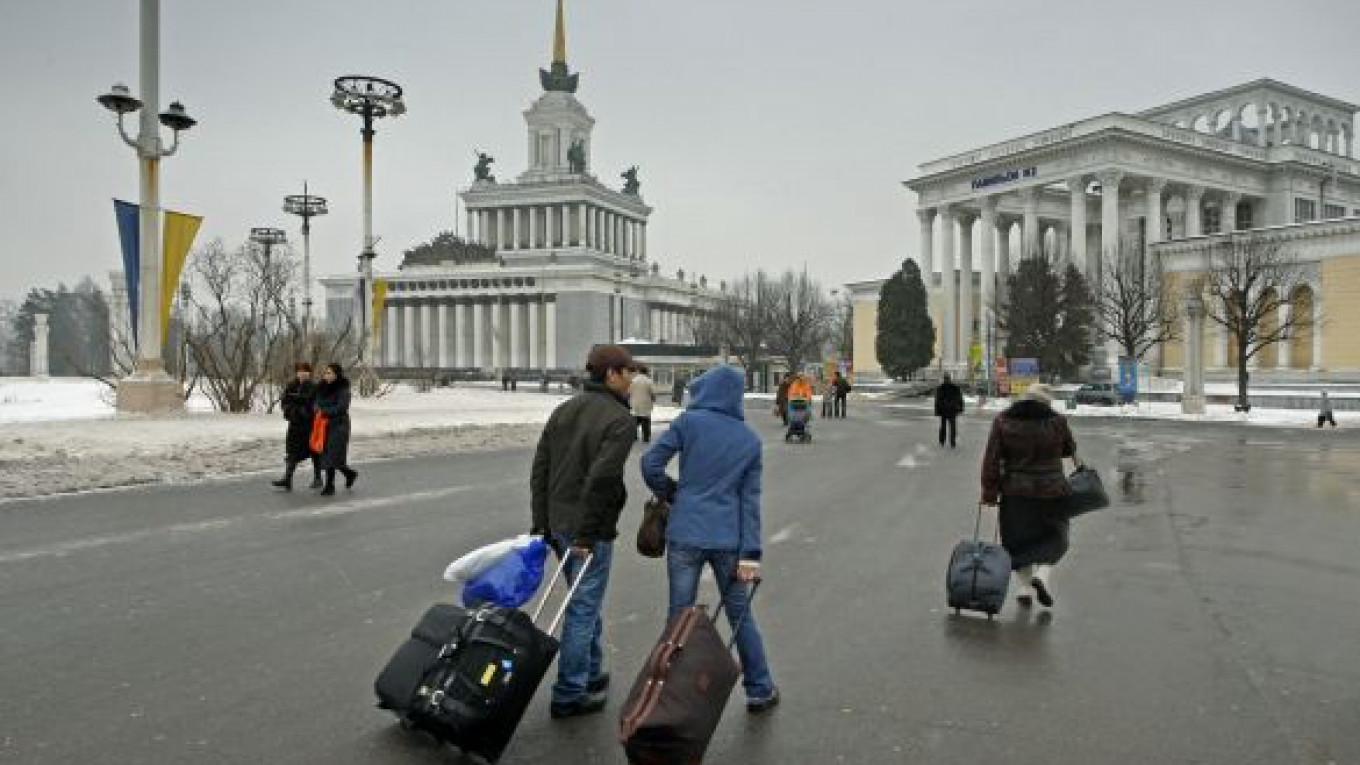A $1.5 billion modernization program for Moscow’s iconic All-Russia Exhibition Center, or VVTs, has been heavily criticized by preservation groups who allege that the plans are likely to destroy dozens of Soviet architectural masterpieces and ruin a unique history.
Preservation group Arkhnadzor released a report late Tuesday that said the plans placed a question mark over the survival of the communist-era buildings by confidently expressing a 2016 finishing date without fully explaining how the development would unfold.
Alexei Mikushko, the new director of the VVTs company that is 70 percent owned by the federal government and 30 percent by Moscow city, announced the “rebirth” of the site last week. The 236-hectare complex originally opened in 1939 will be split into five zones — a cultural-historical zone, an innovation campus, a quality-of-life center, an exhibition-conference center and a large leisure zone.
“Nobody is intending to demolish anything,” Mikushko told a news conference Friday, and stressed that the restoration of the crumbling pavilions and other historical buildings would be a first priority.
With contributions from eight activists and experts, Arkhnadzor’s report, “VVTs: Heritage in Danger!” said these good intentions were actually limited to the most famous pavilions in the central part of the site. “The other zones they intend to actively ‘modernize’ and develop, in other words, to consolidate and build on,” it said.
Many of the center’s 615 buildings — from a variety of Soviet periods — are dotted around its extensive parkland and are much less visited than the main alley with its gushing fountains and ornate Stalinist architecture.
Natalya Dushkina, an activist with Arkhnadzor and one of the report’s authors, told The Moscow Times that objects of value such as the rabbit-breeding pavilion, the ruined open-air theater, the weather station pavilion and the buildings around the former veterinary science pavilion, which burnt to the ground in August, were under particular threat.
She also criticized the intention to alter the heritage status currently enjoyed by the VVTs so as to permit more construction. “The monuments will be less protected than they were before,” she said.
Mikushko told reporters last week that his experience as the project leader for the renovation of the former Hotel Ukraina — now the Radisson Royal Hotel — had provided him and his team with valuable experience. Arkhnadzor said the Hotel Ukraina had undergone a “brutal reconstruction.”
Clementine Cecil, the co-founder of the Moscow Architectural Preservation Society, also attacked Mikushko’s vision.
“A hotel is a very different thing to deal with, the VVTs is a planned ensemble and it requires a completely different approach,” she told The Moscow Times. “He’s not treating it as an ensemble, his plans are to break it up.”
A VVTs spokesperson said the Arkhnadzor report was a personal opinion and declined further comment.
A Message from The Moscow Times:
Dear readers,
We are facing unprecedented challenges. Russia's Prosecutor General's Office has designated The Moscow Times as an "undesirable" organization, criminalizing our work and putting our staff at risk of prosecution. This follows our earlier unjust labeling as a "foreign agent."
These actions are direct attempts to silence independent journalism in Russia. The authorities claim our work "discredits the decisions of the Russian leadership." We see things differently: we strive to provide accurate, unbiased reporting on Russia.
We, the journalists of The Moscow Times, refuse to be silenced. But to continue our work, we need your help.
Your support, no matter how small, makes a world of difference. If you can, please support us monthly starting from just $2. It's quick to set up, and every contribution makes a significant impact.
By supporting The Moscow Times, you're defending open, independent journalism in the face of repression. Thank you for standing with us.
Remind me later.







